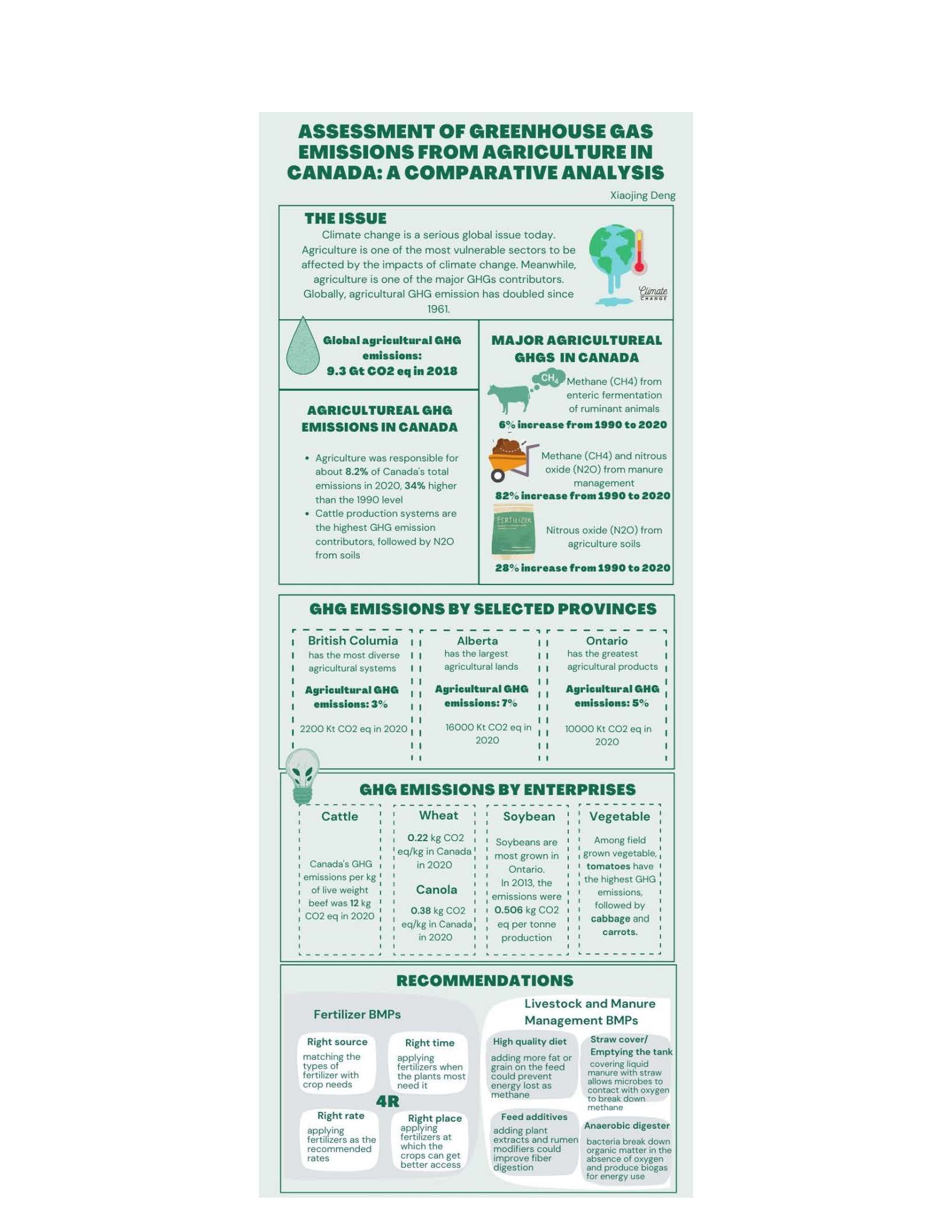Assessment of Greenhouse Gas Emissions from Agriculture in Canada: A Comparative Analysis
Sylvia (Xiaojing) Deng, MLWS 2022
Climate change has become one of the most critical concerns globally today. Evidence includes the increase of surface temperature, the increase of extreme climate events, changes in freshwater availability, the rise of sea level, the decrease of snow cover and ice across the world. In Canada, climate change effects are projected to continue in the future. Agriculture is one of the most vulnerable sectors to be impacted by climate change. Changes in climate can affect crop yield, livestock health, and economies of countries. On the other hand, agriculture is one of the major contributors to climate change, producing a significant amount of greenhouse gases (GHGs). Carbon dioxide, methane, and nitrous oxide are three main GHGs from agricultural crop production and livestock activities, all of which have great warming effects to the atmosphere. Canada has committed to reduce GHG emissions by 40% - 45% below the historical level in 2005 by 2030, and net-zero emission by 2050 (Government of Canada, 2021).
Canada’s agriculture is an important part of Canadian economy, which generated 2.1 % of Canada’s gross domestic product (GDP) in 2020 (Government of Canada, 2021). British Columbia, Alberta, and Ontario are three provinces with distinguished agricultural features. Agriculture plays significant roles in these provinces’ economies. However, agricultural GHG emissions from these regions are also high. Governments should develop relevant policies and encourage more efficient management practices with a focus on reducing GHGs from the agricultural sector.
This white paper focuses on the GHG emissions within the farm gate, excluding the emissions from burning of fossil fuel for on-farm machinery and land use/land use change/forestry, while assessing major sources of GHG emissions from various sectors in Canada by provinces and enterprises, and providing recommendations for climate change adaptation and mitigation.
